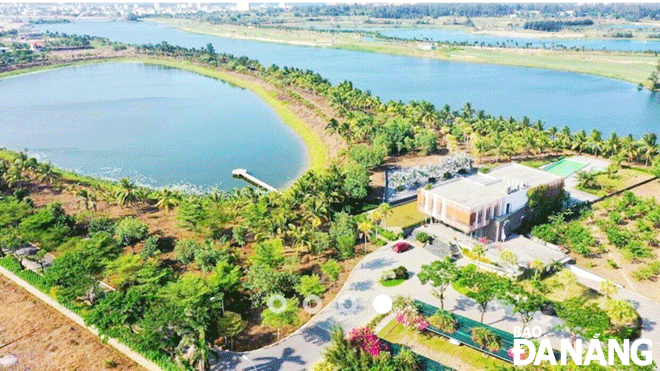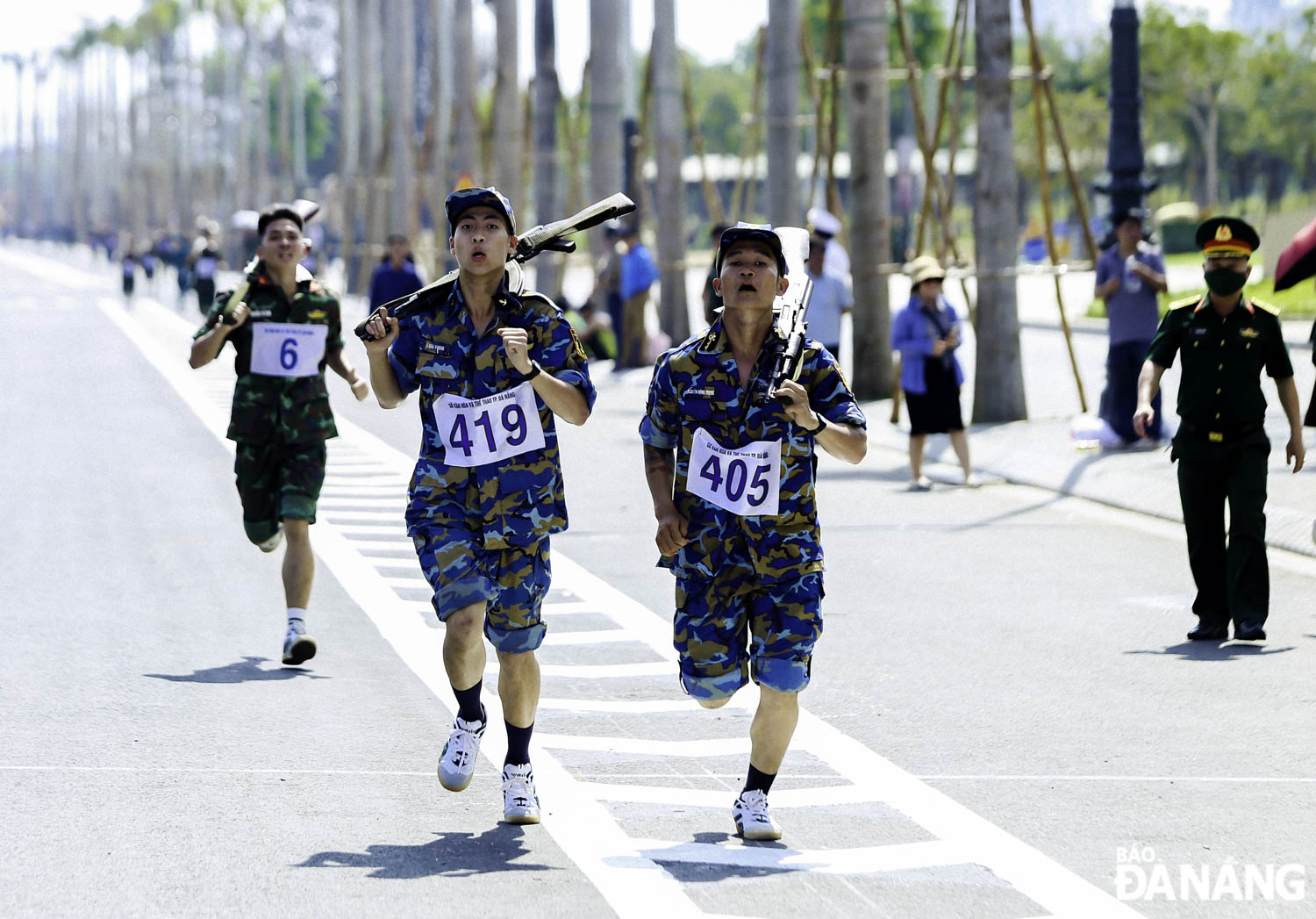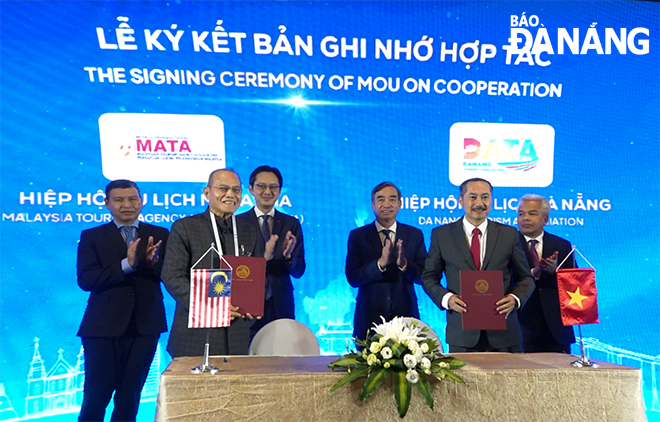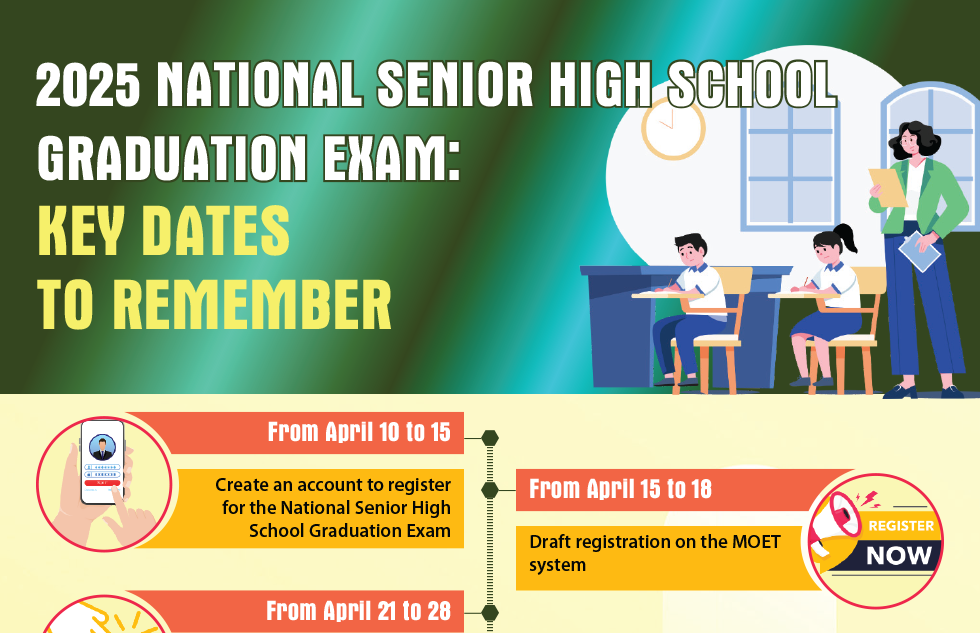Da Nang accelerates ambitious smart city building journey
The Da Nang People's Committee, on August 28, 2021, issued the Digital Transformation Project in the city until 2025, with a vision towards 2030. More recently, May 16, 2022 witnessed the municipal administration issue Decision No. 54/QD-BCDCDS regarding the Digital Transformation Office and the digital transformation is now dubbed as the "key" to open up a new urban development space.
 |
| The city is implementing the planning of innovation zoning, forming a centre to attract investment and develop the digital economy. The FPT urban area belongs to the innovation subdivision according to the Da Nang Master Plan for the city’s major developments by 2030, with a vision towards 2045. Photo: TRIEU TUNG |
Digital transformation is a never-ending journey
Addressing an international seminar themed ‘Smart cities: Experiences of some Western and Nordic countries, and Da Nang’s vision’ held on May 20 in the city, Standing Vice Chairman of the Da Nang People's Committee Ho Ky Minh said that the smart city construction is a common trend of the world and it totally matches the city’s future orientations for the sake of sustainable and prosperous Da Nang.
Fully aware of great digital transformation significance, in 2010, Da Nang embarked upon building an e-government architecture and then put into use the E-government Information System in 2014.
Also from 2014, the city started piloting a number of smart applications in the fields of transportation, environment, healthcare, education, food hygiene and safety.
Based on the aforementioned success, in 2018, the municipal government issued a smart city architectural framework, officially starting the landmark project ‘Building Da Nang into a smart city by 2025, with an orientation towards 2030’, which defines a specific roadmap and priority programmes and projects such as the provision of smart public services, electricity and water supplies, natural disaster prevention and control.
Especially, on August 28, 2021, Da Nang made the debut of the project ‘Digital transformation in the city by 2025, with a vision towards 2030’, in which, digital transformation is identified as ‘the key’ to solve the ‘bottlenecks’ currently facing the city to open up new development space as well as to achieve the goal of Resolution No. 43-NQ/TW dated January 24 - 2019 by the Politburo on the construction and development of Da Nang by 2030, with a vision towards 2045.
Up to now, Da Nang has achieved a number of positive results, shifting management, administration and public service provision from traditional to digital data and digital technology-based methods. The city has been highly appreciated by international organisations in the process of building itself into a smart city.
Standing Vice Chairman Minh added that technology is constantly changing, people's requirements are getting higher and higher and the best way is to cooperate to meet them.
Da Nang itself defines digital transformation in smart city building as a non-stop journey. In order to successfully reach its ambitious target, Da Nang has set out many important solutions, including strengthening cooperative ties and linkages with domestic and international organisations, corporations and businesses to receive support and pieces of useful advice, exchange experiences, beef up transfer technology.
International experience
Austrian Ambassador to Viet Nam Hans-Peter Glanzer expressed his impression about Da Nang's initial achievements on smart city development. The Austrian diplomat said, globally, smart cities are becoming the vanguard for future sustainable development. More and more people move to live in cities.
In 2014, Vienna, the capital of Austria with a population of nearly 2 million, adopted Smart City Wien Framework Strategy, which sets milestones regarding the sustainable future development of the city and places emphasis on social inclusion. Vienna has adopted a unique approach to focusing on quality of life. Its residents have expressed a need for affordable and functional housing, renewable energy, and ecofriendly mobility.
Meanwhile, the Dutch Consul General in Ho Chi Minh City Daniel Coenraad Stork said that in the Netherlands, the building of smart cities is part of the sustainable urban development agenda. It is about enhancing the livability and sustainability of the city.
A smart city is an ongoing journey, not a final destination. Cities change at such a rapid pace that it's hard to predict what people will need and want in the next 30 years. Like Da Nang, tourism is very important to the Netherlands.
With full consideration of present and future economic, social and environmental impacts, the Netherlands aims to develop itself into a livable, popular and valuable destination in the future. This country has set out a long-term vision together with the field. With that vision in mind, it inspires, connects and empowers cities, regions, business owners and other stakeholders.
According to Ph.D Tran Ngoc Linh, an expert from the Urban Development Department under the Vietnamese Ministry of Construction, there are currently 57 localities nationwide that have been implementing contents related to smart city development. In particular, 44 out of the 63 cities and provinces have or are developing smart urban development projects.
“It is highly recommended that cities always review the overall potential and advantages, thereby determining specific application areas and results in each period. Smart urban development must be people-centered”, said Ph.D Linh.
Reporting by TRIEU TUNG - Translating by A.THU








